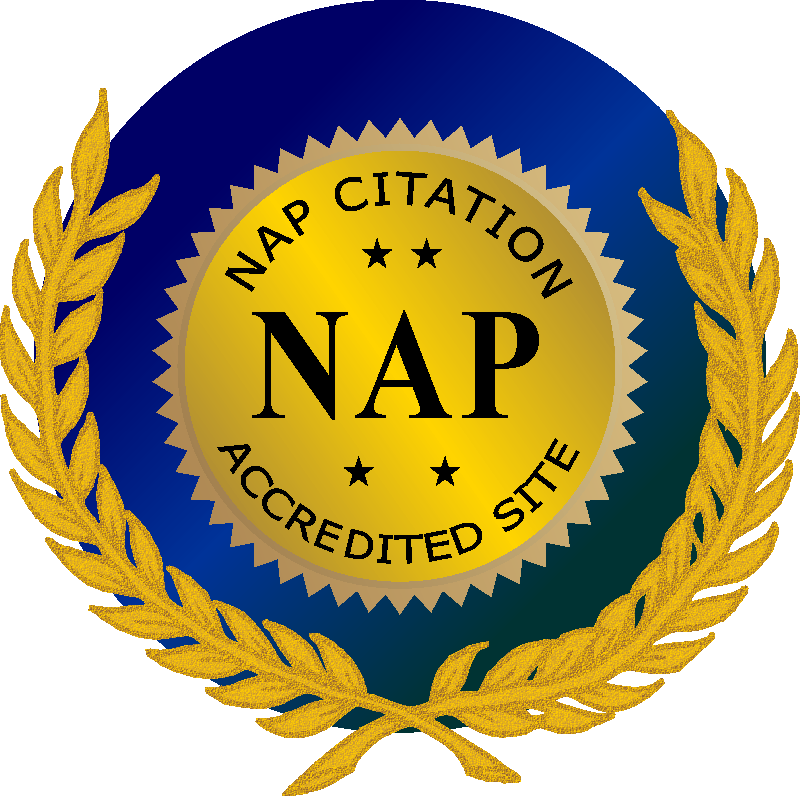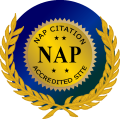CREATE YOUR OWN 'LOCAL BUSINESS' SCHEMA SCRIPT - ELIGIBLE FOR RICH RESULTS
Generate JSON-LD LocalBusiness structured data markup that makes your business eligible for rich results in search engines. This LocalBusiness schema generator helps create properly formatted structured data for various business types including restaurants, medical practices, banks, clubs, and bowling alleys.
Why LocalBusiness Structured Data Markup Matters for Your SEO Strategy
Using schema.org LocalBusiness markup as part of your SEO strategy can significantly improve your local search visibility. The LocalBusiness structured data helps search engines understand and display key business information, making your listings eligible for rich snippets and enhanced search results.
When implemented correctly, this structured data markup improves your chances of appearing in Google's local pack and can enhance your business's presence across various search engine results pages.
Key Benefits of LocalBusiness Schema for Different Business Types:
For Medical Practices: Include structured data with phone numbers, office hours, and services to help patients find your practice more easily in local search results.
For Restaurant Chains: Each branch location can use LocalBusiness schema to maintain consistent NAP (Name, Address, Phone) information across multiple locations.
For Banks: Financial institutions benefit from structured data that clearly defines branch locations, ATM availability, and banking services.
For Clubs and Bowling Alleys: Entertainment
venues can use LocalBusiness structured data to highlight amenities,
operating hours, and contact information.
Create Your LocalBusiness Schema - Eligible for Rich Results
This JSON-LD generator creates LocalBusiness structured data that follows current structured data guidelines and is designed to be eligible for rich results testing.
How to Use This LocalBusiness Schema Generator
Step 1: Complete all editable fields with your exact Google Business Profile information - this ensures consistency with your NAP citations.
Step 2: Verify all phone numbers and addresses match your other online listings.
Step 3: Copy the generated JSON-LD structured data markup between the indicated lines.
Step
4: Paste the code in your website's <head> section.
Step 5: Test your implementation using Google's Rich Results Test tool to verify your structured data markup is properly formatted.
Step 6: Monitor performance in Search Console to track how your structured data affects your search results.
Important Notes for Schema Implementation:
- Keep quotation marks intact within each field
- Ensure phone numbers follow international formatting standards
- Use consistent business information across all your LocalBusiness schema implementations
- For restaurant chains or multi-location businesses, create separate schema for each branch
- Regular testing with Rich Results Test ensures ongoing compliance with structured data guidelines
This LocalBusiness structured data generator helps businesses of all types - from medical practices and banks to clubs and bowling alleys - create properly formatted JSON-LD markup that search engines can understand and potentially display as rich snippets in search results.
By implementing this structured data markup as part of your comprehensive SEO strategy, you're positioning your business to take advantage of enhanced search engine visibility and improved local search performance.
Create your own 'Local Business' Schema Rich Text Script.
How to use
- Details are taken from, and same as your Google Business Profile. *This is the Basis of your NAP Citations.
- Complete the editable fields with your details.
- Don't forget the quotation marks inside each field
- Copy everything in-between the top and bottom line
- Paste this in your website
<head>section
<Head><!--
LocalBusiness --> <script type="application/ld+json">
{
"@context":
"https://schema.org",
"@type": ["LocalBusiness", "OnlineStore","ProfessionalService","Place"]
/* other @types available... */,
"name": ""
,
"description":"",
"image": ["",
""]
,
"@id": ""/*
must have #organization to prevent conflict*/ ,
"url": ""
,
"telephone": "" /*
MUST match NAP citation */ ,
"email": "",
"priceRange":
"$18-$1000",
"currenciesAccepted": "USD",
"paymentAccepted": "Cash, Credit
Card, PayPal, Bank Transfer",
"address": {
"@type": "PostalAddress",
"streetAddress": "" /*
MUST match NAP citation */ ,
"addressLocality": ""
, "addressRegion": "" ,
"postalCode": "" , "addressCountry":
"US"},
"aggregateRating": {
"@type": "AggregateRating",
"ratingValue":
"", "reviewCount": "","bestRating":
"5","worstRating": "1"
},
"geo": {
"@type": "GeoCoordinates",
"latitude":
"" , "longitude": ""} /*
search address in google maps, get co-ords from result url */,
"contactPoint":
[
{
"@type": "ContactPoint",
"telephone": "","contactType":
"Customer Service","availableLanguage": "English"
},
{
"@type": "ContactPoint",
"email": "","contactType":
"Customer Service","availableLanguage": "English"
}],
"openingHoursSpecification":
[{
"@type": "OpeningHoursSpecification",
"dayOfWeek": ["Monday","Tuesday","Wednesday","Thursday","Friday"],
"opens": , "closes":
},{
"@type": "OpeningHoursSpecification",
"dayOfWeek": "Saturday",
"opens":
, "closes": }],
"serviceArea": {
"@type": "GeoCircle",
"geoMidpoint": {
"@type":
"GeoCoordinates","latitude": ,"longitude":
},
"geoRadius":
"50000"
},
"areaServed": ["",
"", "",
""],
"knowsAbout": ["",
"", "",
"Digital Marketing", "Search Engine Optimization"],
"hasOfferCatalog": {
"@type": "OfferCatalog",
"name": "",
"itemListElement": [
{
"@type": "Offer",
"itemOffered": {
"@type":
"Service",
"name": "","description":
""
}},
{
"@type": "Offer",
"itemOffered": {
"@type": "Service",
"name": "Website Development",
"description": "Custom website design and development
services"
}}]
},
"sameAs": [
""
,
""
,
""
,
""
,
""
,
""
,
"
",
""
] }
</script>
</Head>Why Businesses Don't Commonly Use LocalBusiness Schema Markup
1. Lack of Awareness About Rich Results Many businesses don't realize that JSON-LD structured data can make them eligible for rich results, missing opportunities to stand out in search results with enhanced listings.
2. Technical Complexity of Structured Data Guidelines Implementing structured data markup requires understanding structured data guidelines and proper JSON-LD formatting, which many website owners find challenging without developer assistance.
3. Focus on Generic SEO Rather Than Structured Data Traditional SEO strategies often prioritize generic optimization over structured data markup, despite search engines increasingly favoring sites with proper schema implementation.
4. Inconsistent Implementation Across Business Locations For businesses with multiple locations, maintaining consistent LocalBusiness structured data across all branches requires systematic implementation that many overlook.
5. Lack of Rich Results Testing Without using tools like Google's Rich Results Test, businesses can't verify if their structured data markup is properly formatted and eligible for enhanced search results.
Potential
Benefits of Implementing LocalBusiness Schema
Enhanced Local Search Visibility: Proper LocalBusiness schema implementation helps search engines better understand your business context, improving local search rankings.
Improved Rich Snippets Display: Well-formatted JSON-LD structured data increases your chances of appearing with rich snippets that include business hours, ratings, and contact information.
Better Search Console Performance: Search Console data shows that pages with proper structured data markup often perform better in search results.
Consistent NAP Citations: Using LocalBusiness structured data ensures consistent Name, Address, and Phone Numbers across the web, supporting your local SEO efforts.
Cross-Platform Compatibility: JSON-LD format works across all major search engines, not just Google, expanding your structured data benefits.
Recommended Properties for LocalBusiness Schema
To maximize your schema's effectiveness and ensure compliance with structured data guidelines, include these recommended properties:
- Business name and legal name
- Complete address information
- Phone numbers (primary and alternative)
- Business hours and special hours
- Business category and services
- Website URL and social media profiles
- Customer reviews and ratings (when available)
- Payment methods accepted
- Accessibility features
Create your own 'Video Object' Schema Rich Text Script.
How to use
- Complete the editable fields with your details.
- Copy everything in-between the top and bottom line
- Paste this in your website
<body>section, with your video.
<!--
start embed iframe code from youtube. REPLACE with your own <iframe> embed
link-->
<div style="text-align: center;"><iframe width="560"
height="315" src="https://www.youtube.com/embed/WgXU7XAZYmQ?si=bDECZKpC6KIcRS_M"
title="YouTube video player" frameborder="0" allow="accelerometer; autoplay; clipboard-write;
encrypted-media; gyroscope; picture-in-picture; web-share" referrerpolicy="strict-origin-when-cross-origin"
allowfullscreen=""></iframe></div>
<!--
start rich text script, this accompanies iframe for search engines -->
<script
type="application/ld+json">
{
"@context": "https://schema.org",
"@type": "VideoObject",
"name": "",
"description": "",
"thumbnailUrl": "",
"uploadDate": "","duration":
"" /*
PlayTime 14Minutes 20Seconds from youtube */,
"contentUrl": ""
/* YouTube video URL */,
"embedUrl": ""
/* URL of your page where the video is embedded */,
"potentialAction": {
"@type": "WatchAction",
"target": {
"@type":
"EntryPoint",
"urlTemplate": ""
}
}
}
</script>
>
Create your own 'Review' Schema Rich Text Script.
How to use
- Complete the editable fields with your details.
- Copy everything in-between the top and bottom line
- Paste this in your website
<body>section, with the actual review quotation.
{
"@context": "https://schema.org/",
"@type": "Review",
"name": "",
"author": {
"@type": "Person","name": ""
},
"itemReviewed": {
"@type": ["LocalBusiness", "OnlineStore", "ProfessionalService"],
"name": "",
"@id": "",
"url": "",
"description": "",
"address": {
"@type": "PostalAddress",
"streetAddress": "","addressLocality": "",
"addressRegion": "","postalCode": "",
"addressCountry": "US"
},
"telephone": "","email": "",
"priceRange": "$18-$1000",
"image": [
"",
""
],
"logo": "",
"geo": {
"@type": "GeoCoordinates",
"latitude": ,"longitude":
},
"serviceType":
["", "",
"Website Development", "Social Media Management"],
"areaServed": ["",
"", "Kentucky",
"Ohio"],
"sameAs": [
"",
"",
"",
""
]
},
"reviewRating": {
"@type": "Rating",
"ratingValue": "5",
"bestRating": "5",
"worstRating": "1"
},
"datePublished": "","dateModified":
"",
"reviewBody": "",
"reviewAspect": [
"","",
"","",
"",""
],
"positiveNotes": [
"","",
"","",
""
],
"publisher": {
"@type": "Organization",
"name": "",
"@id": "",
"url": "",
"logo": ""
},
"url": "",
"inLanguage": "en-US",
"isPartOf": {
"@type": "WebPage",
"url": ""
}
}
</script>

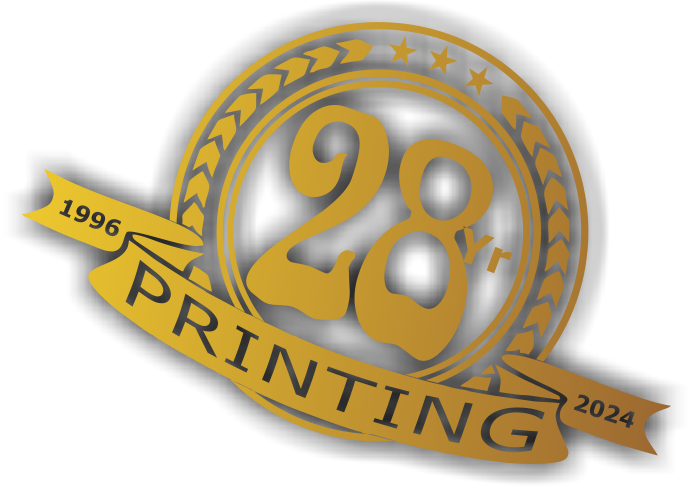 30 years of #TheProfessor
30 years of #TheProfessor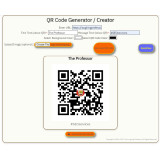
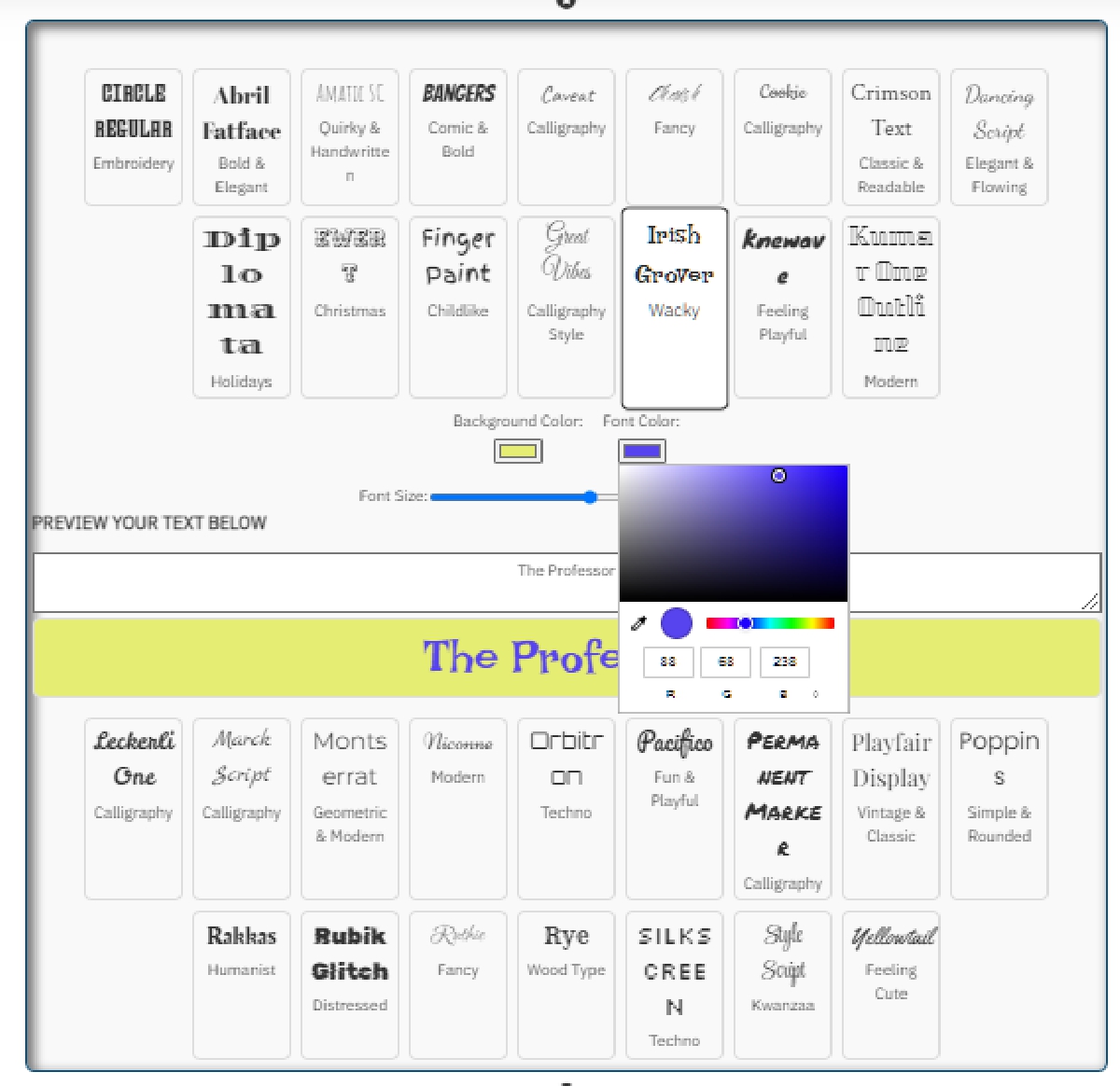
 12% rewards for affiliate members
12% rewards for affiliate members